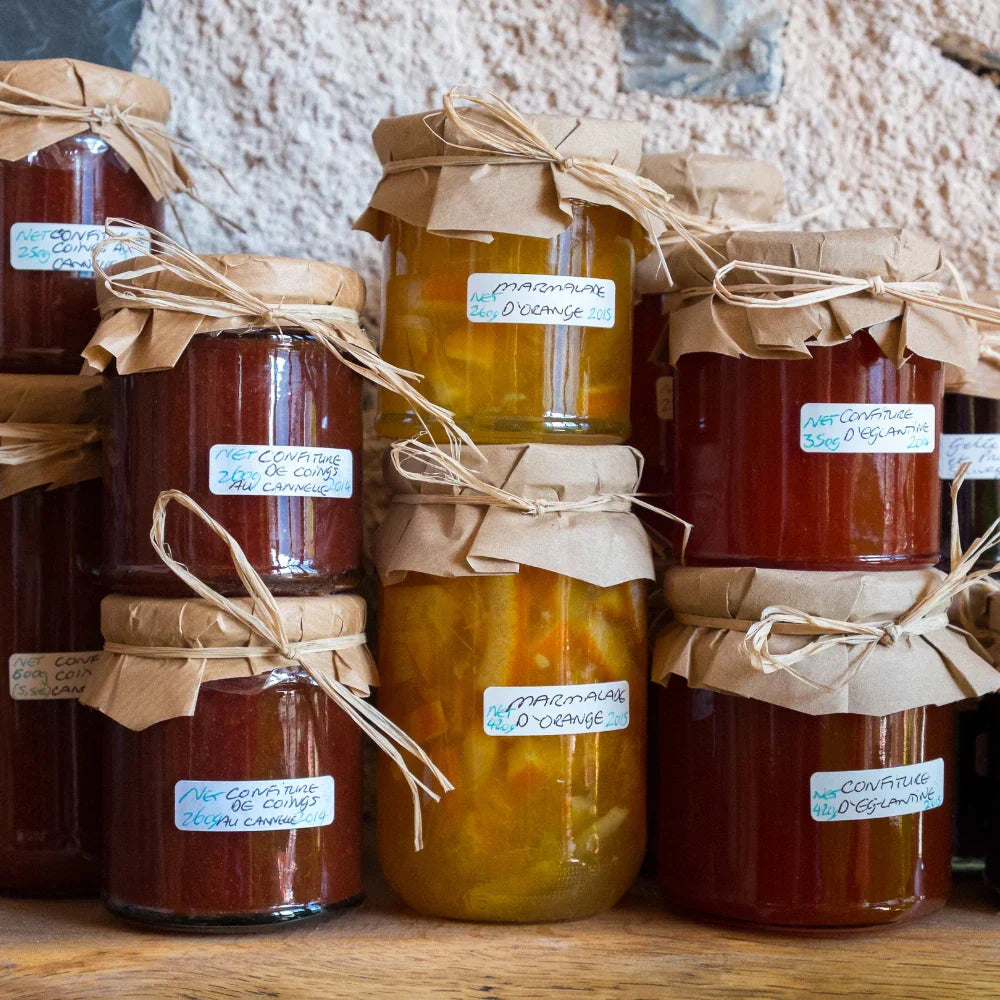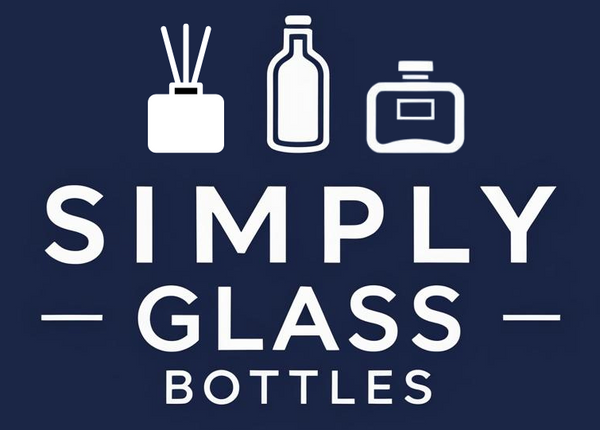
Why Glass Packaging is Safe For Consumer Health
Share
5 Reasons Why Glass Packaging Is Safe for Consumer Health
In today’s consumer-driven world, the safety of packaging materials has become an increasingly important concern. As more people turn their attention to healthier lifestyles and eco-friendly choices, one material continues to stand out as a safe and reliable option: glass. Whether it’s used for food and beverages, cosmetics, or pharmaceuticals, glass packaging has been trusted for centuries due to its purity and durability. But what makes glass so safe for consumer health? In this blog, we’ll explore five key reasons why glass packaging is one of the safest materials for your health.
1. Glass Is Inert and Non-Reactive
One of the primary reasons why glass is considered safe for consumer health is its inert nature. Unlike some other packaging materials, like certain plastics and metals, glass doesn’t react with the contents inside. This is because glass is chemically stable and does not leach harmful substances into food, beverages, or cosmetics.
- No Chemical Leaching: Some plastics, especially those made with polycarbonate (BPA-containing plastics), can leach chemicals like bisphenol A (BPA) when exposed to heat, moisture, or acidic contents. These chemicals have been linked to a range of health issues, including hormonal imbalances, reproductive harm, and increased cancer risk. Glass, on the other hand, does not release any harmful chemicals, making it a safer alternative.
- Safe for All Types of Products: Glass can hold a wide variety of products, from acidic juices to high-end cosmetics and medications, without altering the product in any way. Whether it’s storing your favourite bottled beverage or preserving sensitive pharmaceutical formulations, glass remains a non-reactive, safe container.
2. No Additives or Harmful Coatings
Many packaging materials, particularly plastics, contain additives to improve their performance or extend their shelf life. These additives may include plasticizers, stabilizers, flame retardants, and other chemicals that can leach into the product over time. These chemicals can be harmful, especially if they accumulate in the body.
- Additive-Free: Glass packaging does not require the addition of any chemical agents or coatings to function. The natural composition of glass, primarily made from silica, soda ash, and lime, is sufficient to form a durable, protective container. This makes glass a healthier option, as there is no risk of harmful chemicals leaching into the product.
- No BPA or Phthalates: Unlike many plastic bottles and food containers, glass doesn’t contain substances like BPA or phthalates, which have been linked to a range of health problems, including endocrine disruption and developmental issues in children. Glass packaging offers a pure, chemical-free alternative, making it safer for long-term use.

3. Preserves Nutrients and Flavour Without Contamination
Glass packaging has the unique ability to preserve the flavour and nutritional value of food and beverages without introducing any contamination. The impermeable surface of glass prevents the intrusion of air, moisture, and light, which could otherwise degrade the contents inside. For products like juices, wine, sauces, and baby food, this means that the nutrients and flavours remain intact without the risk of chemical contamination.
- Natural Preservation: Because glass is a stable material, it doesn't interact with the food or drink it holds. This is crucial for maintaining the freshness, taste, and quality of the product. For example, wine stored in a glass bottle will not have its flavours compromised by the packaging itself, unlike wine that might be stored in plastic bottles, which can sometimes impart unwanted tastes.
- No Risk of Migration: In contrast to some plastics, glass doesn’t release substances that could degrade food, beverages, or cosmetics. This is particularly important for preserving sensitive items like organic food products, baby formula, and natural skincare products that could be impacted by contamination from the packaging.
4. Resistant to Microbial Growth
Another major advantage of glass is its resistance to microbial growth. Unlike plastics, which can harbour bacteria in their porous surface or break down over time, glass is impermeable and does not provide a place for bacteria, mould, or other microbes to grow. This makes it a particularly safe material for storing food and liquids.
- Easy to Clean and Sterilize: Glass can be thoroughly cleaned and sterilized without losing its structural integrity. It doesn’t retain any odour, stains, or bacteria, making it an excellent choice for products that need to maintain a high level of hygiene. For example, glass bottles used for baby food, juice, or medications can be cleaned and reused without the risk of contamination.
- No Pore Space for Bacteria: While certain types of plastic can accumulate bacteria or mould in the microscopic pores of their surface, glass is completely smooth and non-porous. This makes it less likely to harbour harmful microbes, ensuring that products remain safe for consumers, especially those with sensitive immune systems.

5. Safe for Reheating and High Temperatures
One of the major concerns with packaging materials is their ability to withstand high temperatures without compromising the product inside or releasing harmful chemicals. Glass is uniquely suited for handling temperature extremes, which is why it is often used for packaging products that require reheating or pasteurization, such as sauces, soups, and ready-to-eat meals.
- Heat-Resistant: Glass is known for its ability to withstand high temperatures without breaking down. Unlike plastics that can release toxins when exposed to heat, glass remains stable under thermal stress. This makes glass the go-to choice for microwave-safe containers, food jars, and even baby bottles, as it ensures the safety of the consumer when reheating food or beverages.
- Non-porous and Heat-Stable: Glass does not warp or degrade under high temperatures, unlike some plastics, which can deform or release potentially harmful substances when heated. This stability ensures that glass containers are safe for consumer use, even in high-heat environments like microwaves, ovens, or dishwashers.
Bonus: Environmental Benefits of Glass Packaging
While glass is often chosen for its safety, its environmental benefits make it even more appealing. Unlike plastic, glass is 100% recyclable, and it can be reused without compromising its quality. Recycled glass reduces the need for new raw materials, saves energy, and decreases the carbon footprint of production. This is especially important as consumers become more conscious of the environmental impact of packaging materials.
- Infinitely Recyclable: Glass can be recycled indefinitely without losing its quality, making it one of the most sustainable packaging materials available. Recycling glass reduces the need for raw materials and cuts down on emissions from the production process, benefiting both consumer health and the planet.
- Less Waste: Since glass is durable, reusable, and recyclable, it produces less waste in the long run compared to single-use plastic products. Fewer plastic products in landfills and oceans means fewer pollutants leaching into ecosystems and fewer microplastics contaminating our food and water supply.

Conclusion: Glass is a Safe and Healthy Packaging Choice
From its chemical stability to its ability to preserve nutrients and flavour, glass packaging is a reliable, safe option for consumers. The benefits of glass, whether in food, beverage, cosmetic, or pharmaceutical packaging, extend beyond simple durability to include non-reactivity, hygiene, and heat resistance. Glass is not only safe for human health, but it’s also an environmentally friendly choice that promotes sustainability through its recyclability and long-lasting nature.
As more and more consumers seek out healthier, more eco-conscious products, glass packaging stands as a powerful testament to the importance of safe materials. By choosing glass, consumers can trust that they are opting for the highest standard of purity, protection, and health safety for both themselves and the planet.
In the end, glass packaging offers peace of mind, knowing that it will keep products free from harmful chemicals, bacteria, and contaminants, ensuring that what’s inside remains as pure and safe as the day it was packaged.
